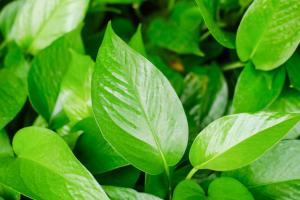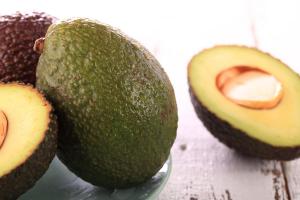Why do Plants Die under Walnut Trees?
Walnuts are known for their delicious taste and health benefits. However, if you are a gardener or farmer, you may have noticed that some plants do not grow well under the shade of walnut trees. In fact, plants such as tomatoes, potatoes, and peppers are known to die under walnut trees. So, what is causing this issue?
What is Juglone?
The culprit behind the death of plants under walnut trees is a chemical compound called Juglone. Juglone is a toxin that is naturally produced by the roots, leaves, and bark of walnut trees. It is a natural defense mechanism for the tree because it kills surrounding vegetation, preventing other plants from competing for resources.
While juglone is toxic to many plants, some plants have developed a resistance to it. These include other walnut trees, hickories, and some species of shrubs and flowers. However, most garden and crop plants, including vegetables and fruit trees, are very sensitive to juglone and cannot tolerate even small amounts of it in the soil.
How Does Juglone Work?
When juglone is present in the soil, the plant roots absorb it and transfer it to the leaves and other parts of the plant. Juglone inhibits the plant's ability to produce energy through photosynthesis, resulting in wilting, yellowing, and eventually death. In addition, juglone also affects the soil microorganisms, making it less hospitable for certain plant species to grow.
How to Deal with Juglone?
If you want to grow plants under walnut trees, there are a few strategies you can adopt to minimize the effects of juglone. The first is to choose plants that are resistant to juglone. This includes species such as hostas, ferns, and bleeding hearts. In addition, you can also create raised beds and grow plants in containers, which will provide a barrier between the soil and the juglone. You can also try to remove as much of the juglone-containing plant material as possible and replace it with non-juglone-producing species.
If you have a large property and many walnut trees, it may be difficult to completely get rid of juglone in the soil. In this case, you may want to consider planting your garden or crops in another location away from the walnut trees.
Conclusion
Juglone is a natural toxin that is produced by walnut trees to protect them from other plants. While it is an effective defense mechanism, it can be problematic for gardeners and farmers who want to grow other plants under the shade of walnut trees. By understanding juglone and adopting some strategies, such as choosing resistant plants and using raised beds, you can still enjoy the benefits of walnut trees without sacrificing your garden or crops.

 how many times do yo...
how many times do yo... how many planted tre...
how many planted tre... how many pine trees ...
how many pine trees ... how many pecan trees...
how many pecan trees... how many plants comp...
how many plants comp... how many plants can ...
how many plants can ... how many plants and ...
how many plants and ... how many pepper plan...
how many pepper plan...
































